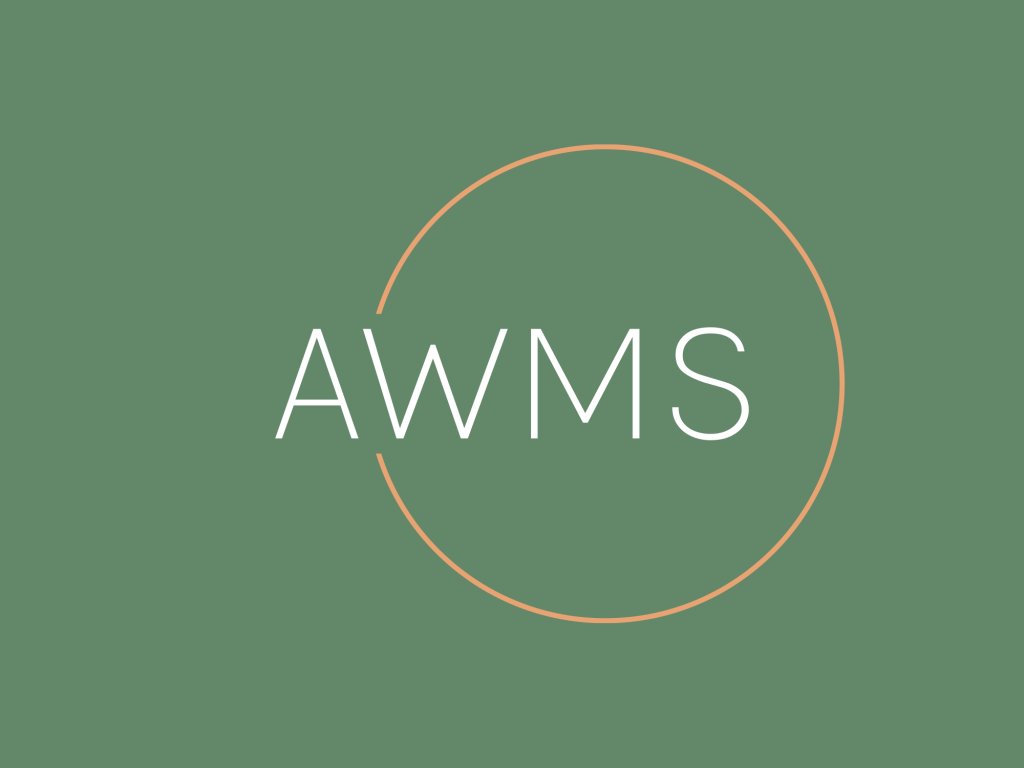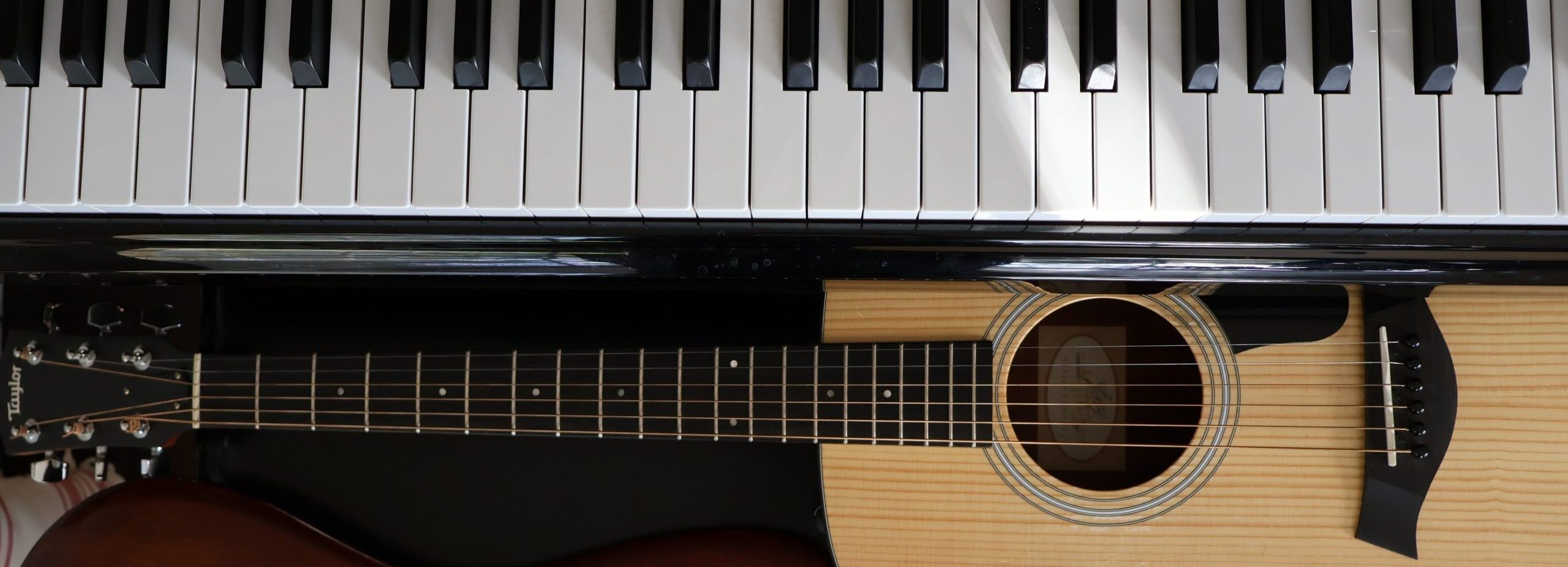Teaching Philosophy
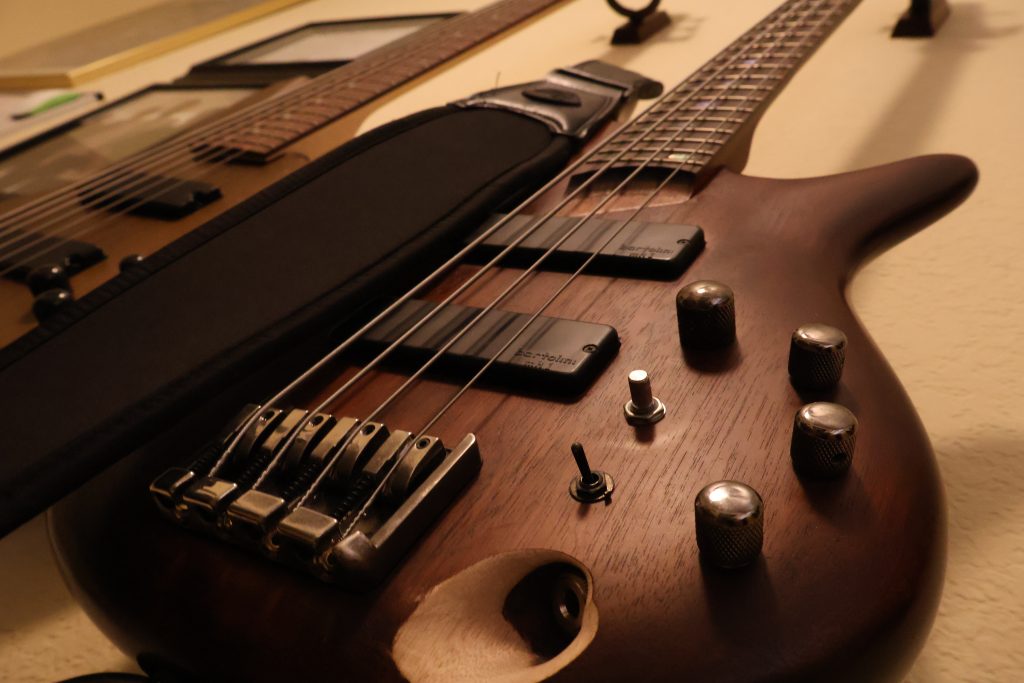
I believe that music is a core subject. In learning music we learn math, science, history, art, discipline, and community all in one beautiful package. We engage with our instrument on a regular basis to explore technique, expression, and artistry. Lessons are a way to engage with these subjects in a consistent manner.
I teach guitar lessons and bass guitar lessons with an emphasis on fundamentals, and I strongly believe that fundamentals fuel the music. Just like a great author must learn to command a language, we as musicians must learn to consistently produce specific sounds on our instrument to communicate effectively and artistically.
My goal is to teach students to enjoy music, develop discipline, and become better learners.
Guitar Lessons
Whether you are a beginner starting guitar lessons for the first time, or you know some campfire chords and want to take your playing to the next level, you are in the right place. I believe in a holistic approach to learning music, so in lessons we will be focusing on chords, single-note picking, music theory, listening, and much more.
Guitar is a very versatile instrument, and through the course of taking guitar lessons, you’ll learn about many of the facets of the instrument: from the percussive chord “chops” you hear in funk and motown, to the lyrical singing solos, to the delicate sound of finger-style guitar in pop and country music.
While the bass is my main instrument, I have a breadth of knowledge on the guitar as well. Guitar was actually my first instrument! I started at the age of 10, and studied classical guitar from middle through high school, then learned to strum and play with small bands. Since then, I have collaborated with church groups, small jazz combos, and country rock bands.
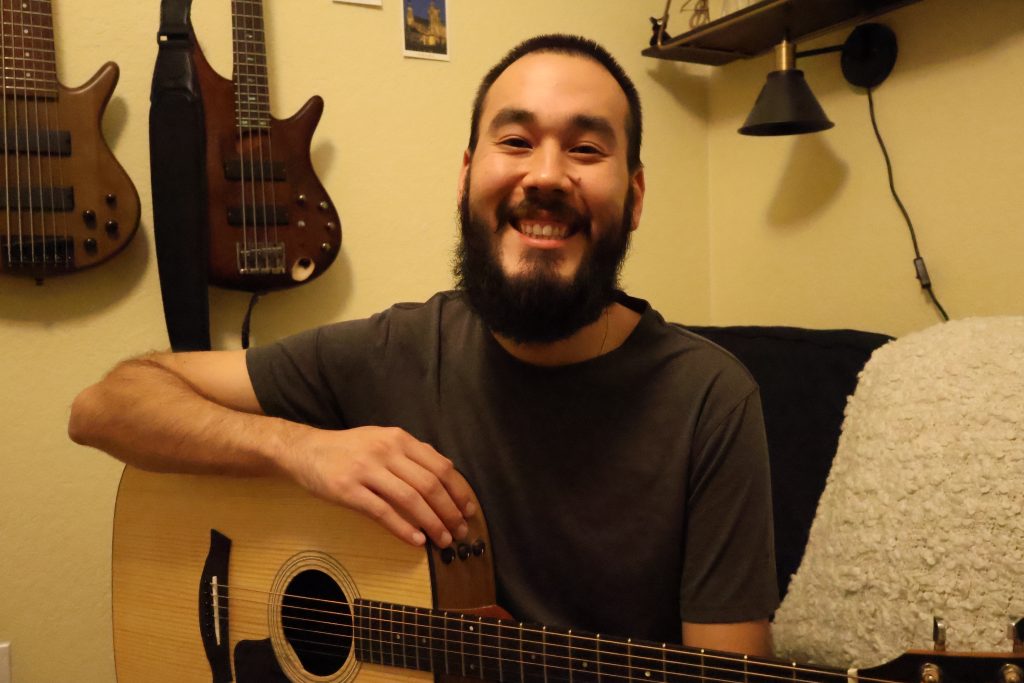
When enrolling in guitar lessons you will need to bring:
-your guitar
-music/method books (I will send you links to purchase)
-pick
You will NOT need to bring:
-a tuner (provided at the studio)
-music stand
-an amp
-your super fancy pedal board
Bass Guitar Lessons
The bass guitar might be one of the most underappreciated instruments. In many musical settings, the high-pitched instruments get the majority of the spotlight: the violin in the symphony orchestra, the lead singer or guitarist in a rock band, the trumpet in the wind band, the list goes on. But without the bass, many entire genres of music would fundamentally have to be reworked. The walking bass lines of jazz big bands, the upright bass players in mariachi, bluegrass, country bands, the bass guitar players in funk and motown bands in the 70s and 80s?
If you want to be the foundation that the rest of your musical group stands on, then the bass guitar is the instrument for you.
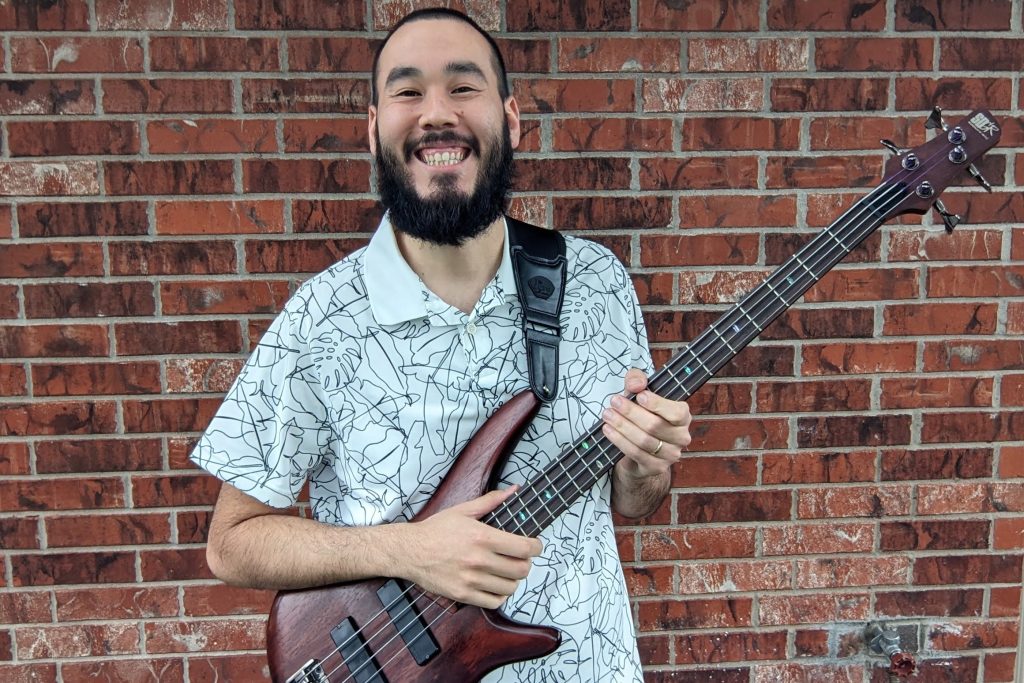
I started playing the bass guitar when I was 13, after I had a couple of years of training on the double bass.
If it is a possibility for you to play both the double bass, and the bass guitar, I would wholeheartedly recommend it.
In bass guitar lessons, much like every other instrument I teach, I emphasize a holistic understanding of music. Having an understanding of music theory and listening to records through the years are the reasons that I am able to play several different instruments at a high level of proficiency. Without this general music knowledge, each new instrument you learn requires you to start from ground zero again.
For bass guitar lessons, you will need to bring:
-your bass
-music/method books (I will send you links to purchase)
-an instrument cable
For bass guitar lessons, you will NOT need to bring:
-your amp
-your pedalboard (you are welcome to, but it isn’t required)
-tuner/music stand (these are already at the studio)
